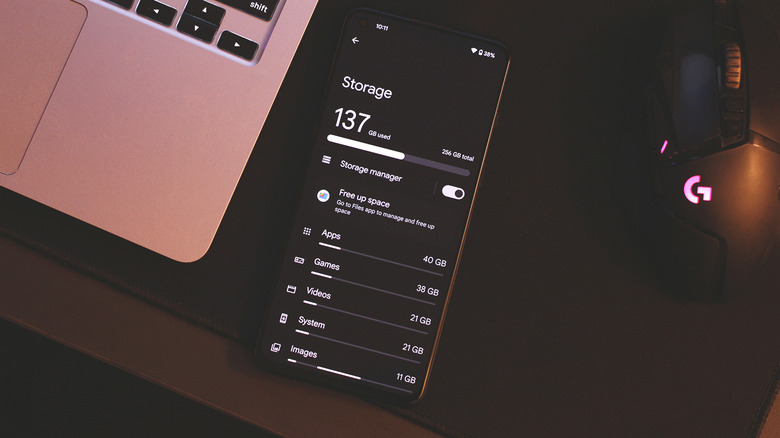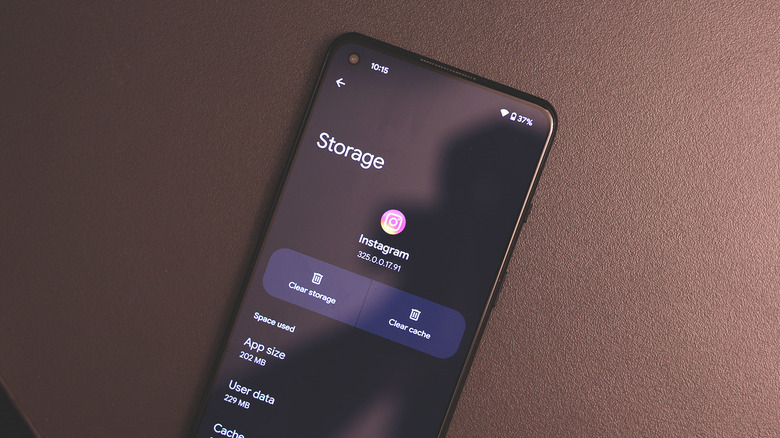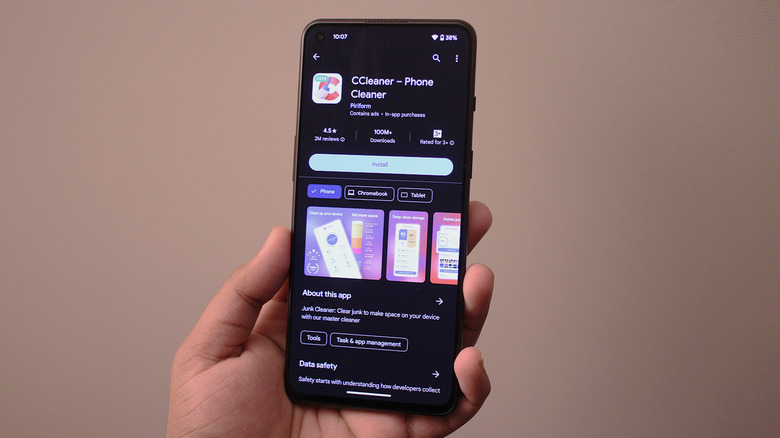Do Cache Cleaner Apps For Android Actually Work?
The Google Play Store is home to all sorts of fancy apps and games. Need to seamlessly transfer files from your phone to your laptop wirelessly? You can use Pushbullet for that. Want an app to manage all of your finances? The Play Store has got that covered as well. Among the sea of entertainment and productivity apps, it is the utility section that has always been the most fascinating.
These apps unlock your phone's potential by allowing you to perform tasks that you otherwise couldn't have using preinstalled apps or features. Despite the variety of utilitarian software for Android, one category seemingly dominates the rest — cleaner apps and, more specifically, apps that claim to clear your phone's "cache".
But what does this even mean? Are these apps similar to other cleaner apps that promise to free up storage space on your phone? And do they actually boost your device's performance as advertised? The short answer is yes — but they might not be as useful or essential as you might think.
What is cache memory?
Before deciding if you need a cache cleaner app on your phone, we first must understand the role of cache memory itself. Normally, a computer stores temporary data for apps and services in its RAM or Random Access Memory, which makes retrieving information for the apps you use on a daily basis much faster. Think of cache memory as an even faster way for your CPU to access the data it needs to process — and this is what your phone relies on for your most frequently accessed apps.
Your Android phone stores a variety of data in its cache memory, ranging from temporary files to scripts that allow you to connect to websites faster. Things like image and video thumbnails for social media apps like YouTube and Instagram or web pages in different Chrome tabs you have opened use cache storage to provide a faster and smoother experience when operating your device.
There's only so much data that your phone can cache for easy retrieval. Normally, most modern phones are intelligent enough to manage cache memory dynamically by offloading older data that you might not need for a while and replacing it with newer, more relevant information that you're likely to access in the near future.
Should you use a cache cleaner app?
While there's nothing inherently harmful about cleaning your phone's cached data, doing so frequently actually has more pitfalls than benefits. Since the Android operating system does a fantastic job at RAM management, you don't need to manually clear your phone's cache memory for it to run optimally. In fact, constantly purging cached data like thumbnails and pre-loaded webpages makes loading the apps that use them much slower and might even take a hit on battery life since these files need to be created from scratch again.
Unfortunately, most cleaner apps on the Play Store are filled to the brim with advertisements, and while they do as promised, the app's very existence might slow your phone down more than cached data ever would. Although there are a few cleaner apps like Files by Google that don't bombard your phone with adware, it's a pretty straightforward process to clear your Android phone's cache without using third-party apps. Certain manufacturers like OnePlus, Oppo, and Xiaomi even offer one-tap solutions that clear the RAM and cache to boost your phone's performance in an instant.
Clearing cache once in a blue moon is fine and may yield benefits like increased storage space and fewer slowdowns, especially if certain apps on your phone have been acting up. But you'd be surprised at just how quickly apps begin to cache new information, making it quite pointless to try to keep this sector of your phone always clean and fresh.


